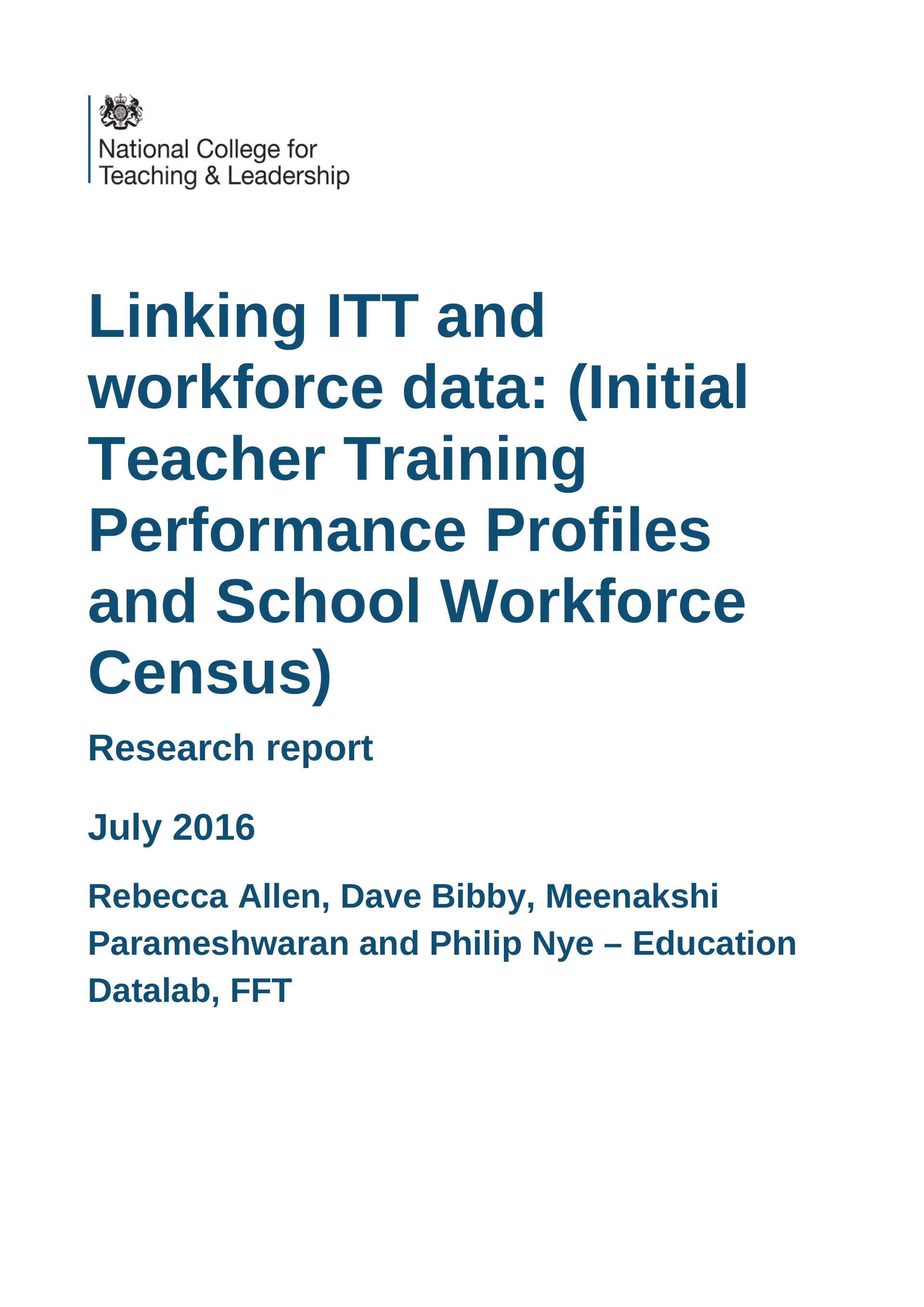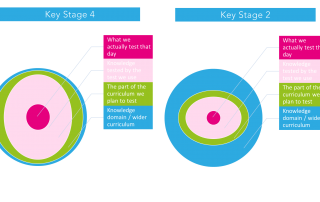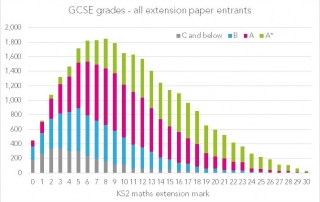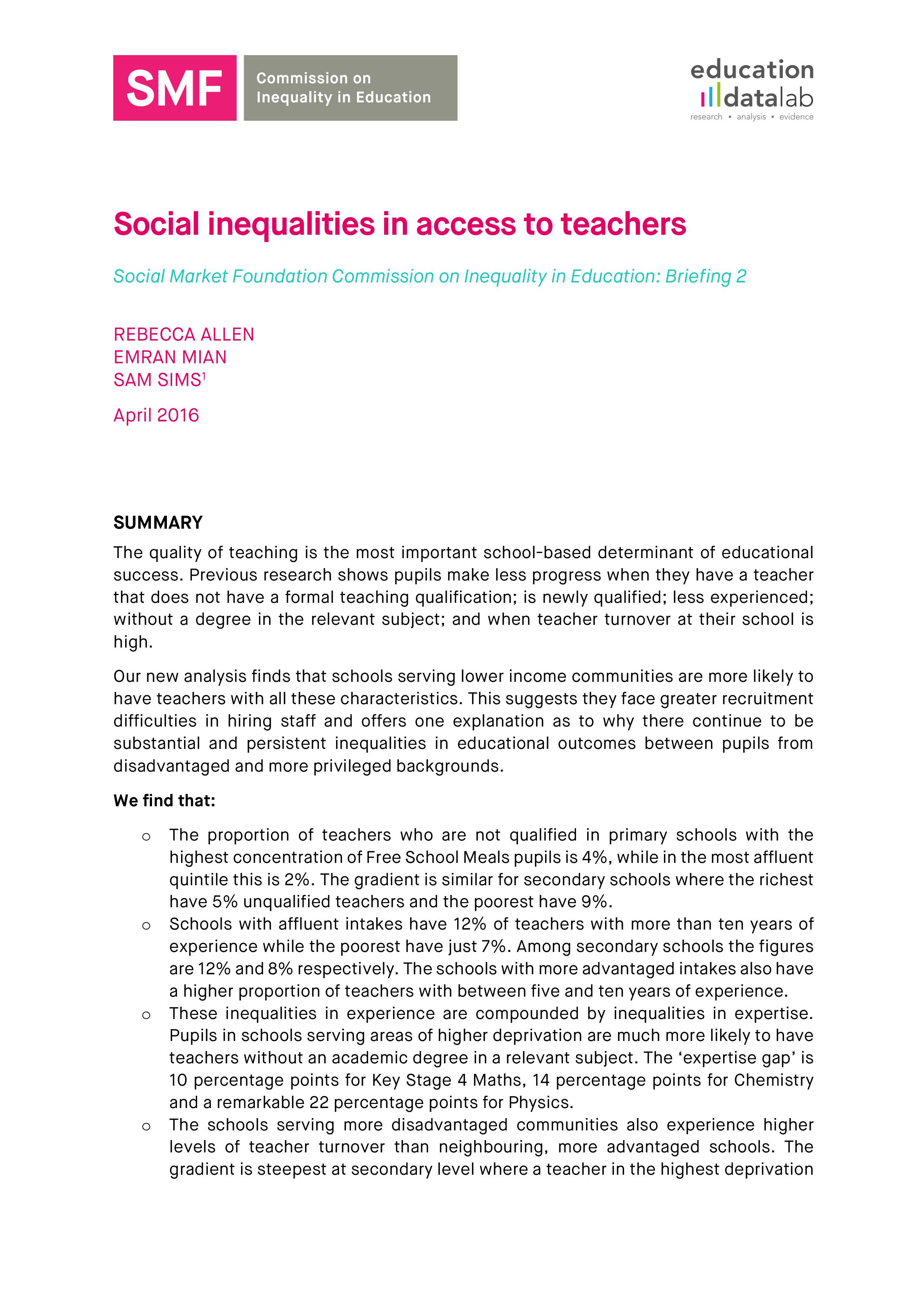Linking ITT and workforce data: (Initial Teacher Training Performance Profiles and School Workforce Census)
This report gives some initial estimates of retention in the state-funded teaching workforce in England by teacher training route, as a proportion of all those first registering on an ITT course. We illustrate how this varies by region and teacher characteristics. We give lower and upper bound retention rate estimates, reflecting uncertainty inherent in the [...]











